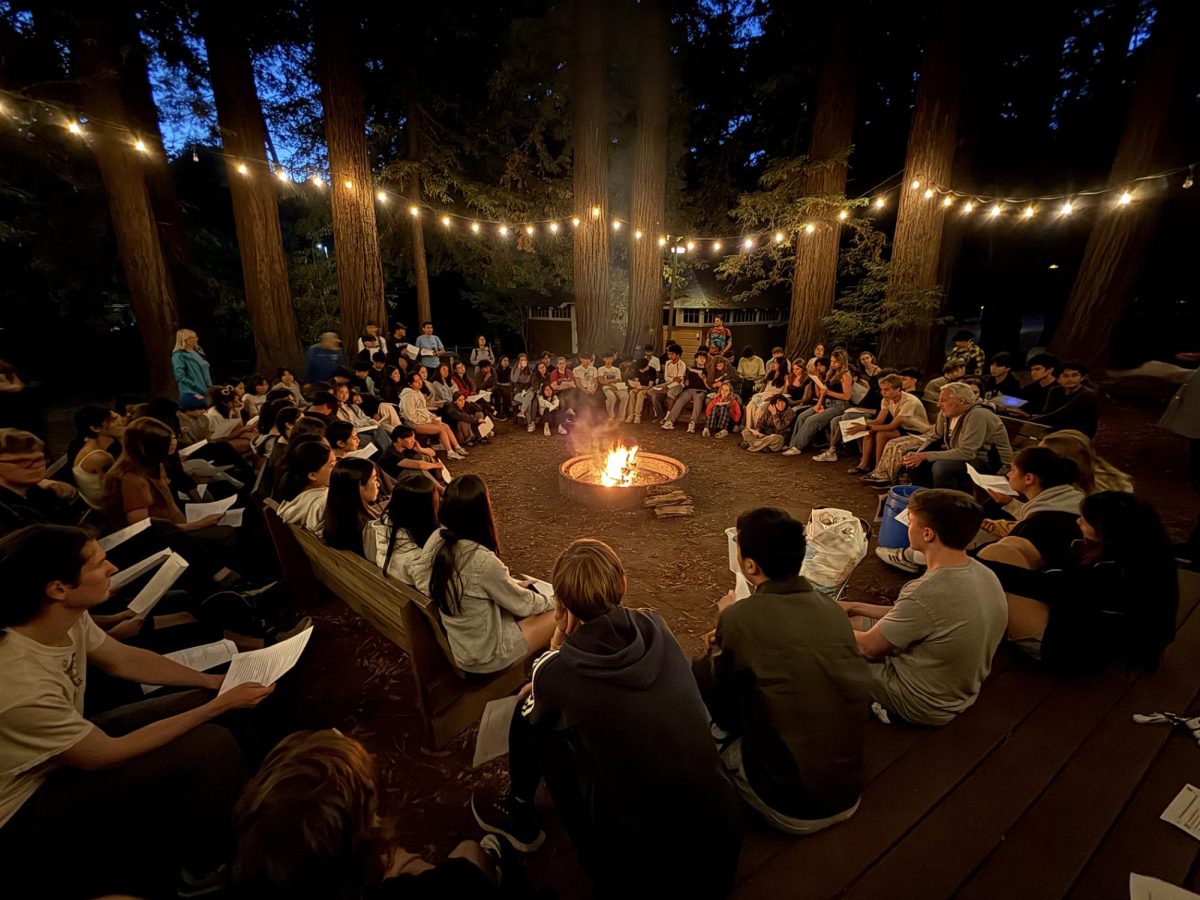
Jamie Gao
During this year’s senior retreat, 12th-grade dean Phil Moreno asked the seniors to jot down their expectations for personal interactions with parental figures and other students during this year’s upcoming college admissions process. Using these anonymous submissions, the 12th-grade representatives Aadit Barde ’26 and Mylie Malden ’26 are working to compile a list of the requested norms to implement later this year.
Known as the College Bill of Rights, this set of expectations is designed to help seniors and their families feel supported and at ease throughout the college application process.
While the College Bill of Rights was not formalized last year, there are unspoken rules at Nueva that conform to fit the needs of the newest graduating class.
Barde and Malden believed last year’s informal implementation was effective and made the college admissions process smoother for the class of 2025, so they hope to adjust it to meet this year’s class’s expectations.
“We really are just trying to look at what everybody said that they wanted and incorporate it well,” Malden said. “Guidelines like being encouraging but not evaluative of others make the whole process a lot easier to talk about.”
Barde agreed with Malden. “I think it’ll give people a lot more clarity and a lot more guidance,” Barde said. “Hopefully it can make people a lot more comfortable being around their peers so they don’t feel that pressure of college hanging over them all the time.”
The senior grade representatives, in collaboration with Moreno, have invited their classmates to volunteer in forming the final document. Pearl Yeh-Lee ’26, one of the volunteers, is collecting opinions and perspectives on the college admissions process from across the grade. She aims to amplify the reach of the College Bill of Rights by translating student feedback into meaningful changes that simplify the college admissions process.
Yeh-Lee also acknowledged the difficulties of capturing the opinions of all her peers. “While we were drafting [the College Bill of Rights], it was important for us to distinguish best practices versus requirements,” Yeh-Lee said. “So as a result, I am certain that we’re not encapsulating everyone’s wishes—just what seems reasonable.”
Moreno hopes that this process will encourage seniors to speak their minds and advocate for themselves.
“[The College Bill of Rights] gets out into the open, some of the things that are unsaid in this process,” he said. “I think it’s a great endeavor, because I’m a firm believer that, if you hold stuff in, it just keeps growing till you burst.” The College Bill of Rights, Moreno explained, was intentionally brainstormed at the senior retreat to set a tone of ideation and solutions.
The Class of 2026’s version of the College Bill of Rights is still being finalized and will be released in early October.